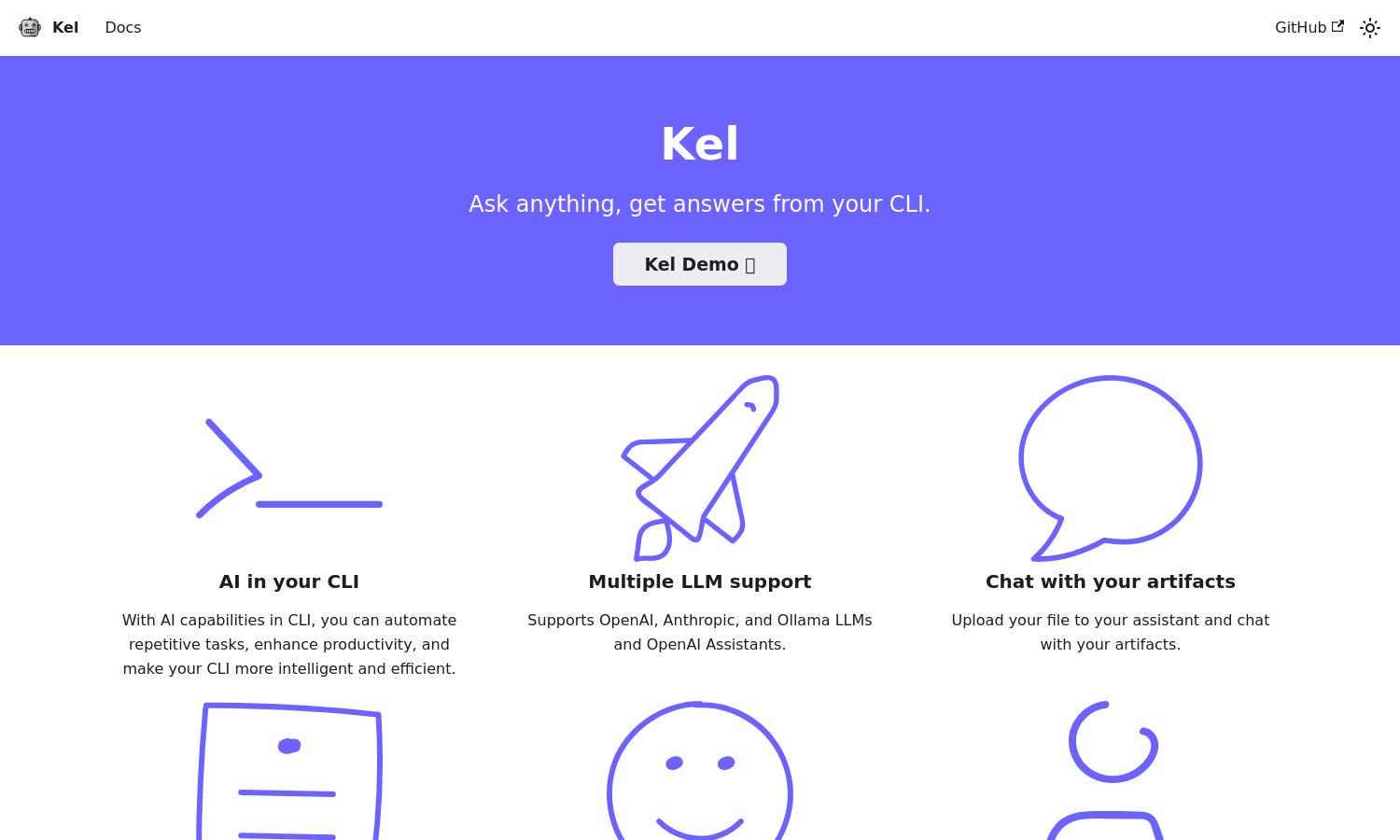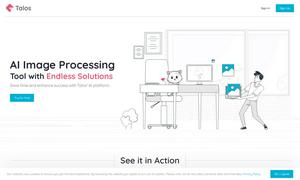Kel

About Kel
Kel is an innovative AI assistant for your CLI, targeting developers and tech enthusiasts. It integrates OpenAI and Anthropic for smart task automation and productivity enhancements. By allowing users to upload files and interact with them, Kel maximizes efficiency and transforms how tasks are performed in command line environments.
Kel offers its services for free as an open-source platform. Currently, there are no subscription tiers, allowing users to access its full functionality at no cost. Upgrading to any future premium models will bring enhanced features and faster support, accentuating the platform's value for advanced users.
Kel features a streamlined user interface that simplifies interaction with AI capabilities in the CLI. Its intuitive design ensures seamless navigation, allowing users to quickly access features like LLM support and upload functionality. The user-friendly layout encourages efficient productivity and enhances the overall experience with Kel.
How Kel works
Users interact with Kel by first onboarding their AI capabilities into the CLI through a simple setup process. After providing necessary API keys from OpenAI or Anthropic, users can easily upload files to chat with their artifacts. Navigating Kel's features is intuitive, enhancing automation and productivity in their daily tasks.
Key Features for Kel
Multiple LLM Support
Kel's standout feature is its multiple LLM support, allowing users to integrate OpenAI, Anthropic, and more into their CLI. This flexibility empowers users to choose their preferred AI models, enabling smarter automation of tasks while enhancing productivity and efficiency in the command line environment.
Chat with Artifacts
Kel introduces a unique "Chat with Artifacts" feature that allows users to upload files and engage in conversational AI. This functionality enhances user interaction with data, making it easier to extract insights and automate tasks directly from their command line, optimizing workflows in innovative ways.
Open-Source Accessibility
Kel stands out due to its open-source nature, ensuring that users can freely access its features and contribute to its development. This accessibility promotes community-driven improvements and enhancements, allowing users to tailor Kel to their specific needs while enjoying the benefits of collaboration and innovation.
You may also like:








